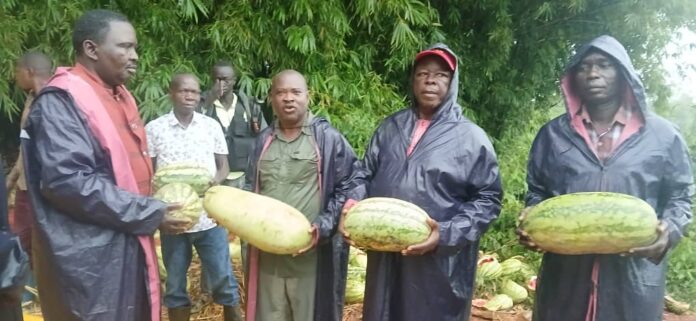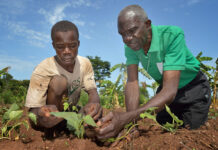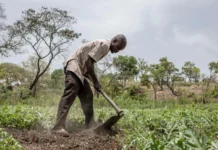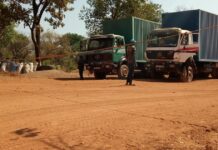The Managing Director of Anisa Trading Company, Gabriel Mathew, popularly known as “Gabi Tourist,” has made an urgent plea to the Government of South Sudan, UN agencies, and international partners to help absorb the surplus produce from his expansive farm in Gangura Payam, Western Equatoria State (WES). Without timely intervention, much of the harvest risks being wasted.
Despite limited government support for local farmers, Gabriel has taken the initiative to cultivate a vast 8 km by 6 km farm, producing a wide range of crops including maize, rice, tomatoes, onions, watermelons, and beans. His efforts have contributed to stabilizing local food prices, but a lack of buyers threatens the viability of his operation.
At a recent press conference held on his farm, Gabriel called on President Salva Kiir’s government, international organizations like the World Food Programme (WFP), and other key stakeholders to purchase the surplus, stressing the importance of both food security and economic sustainability for local farmers.
“I ventured into agriculture to reduce South Sudan’s dependence on imported food from neighboring countries like Uganda, Kenya, and Sudan,” Gabriel explained.
He emphasized that his motivation came from the rising exchange rate of the South Sudanese pound against the dollar and the President’s call for citizens to embrace agriculture as a path to self-reliance.
Since launching his farming initiative in early 2024, Gabriel’s farm has produced significant yields. However, financial constraints now threaten the project’s sustainability. “I’ve financed everything out of my pocket, from tractors to trailers,” he said, adding that operational costs have become overwhelming.
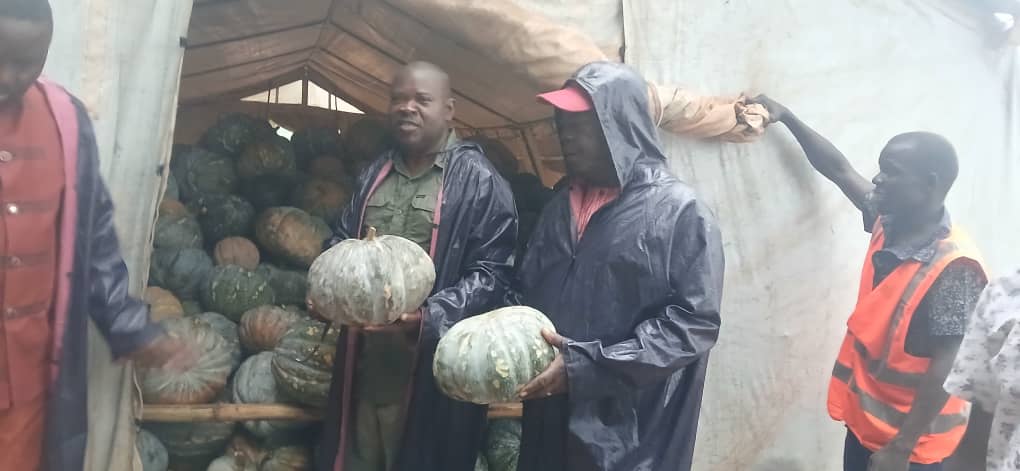
In addition to financial challenges, Gabriel’s farm faces external threats such as pest infestations—specifically armyworms—and limited access to essential agricultural inputs.
He appealed to the Agricultural Bank, USAID, the World Bank, and the South Sudanese government to step in and purchase the surplus to prevent spoilage.
Hon. Alison Barnaba, the Minister of Agriculture in Western Equatoria State, commended Gabriel’s efforts, praising him as a model for other farmers.
“Gabriel is showing that we can grow what we need locally, reducing our reliance on imports and contributing to our food security,” Barnaba stated.
Yambio County Commissioner, Hon. Mbiko Barakato, also lauded Gabriel’s agricultural venture, urging national authorities to support such initiatives.
“This is exactly the kind of project that our government should invest in. Gabriel’s farm can not only sustain Western Equatoria but also make a significant impact on South Sudan’s overall food supply,” the commissioner remarked.
Gabriel’s appeal comes at a critical time, as food insecurity remains a major concern across South Sudan. As the harvest season peaks, his surplus represents an opportunity to alleviate local food shortages, but without immediate buyers, the risk of waste looms large.


